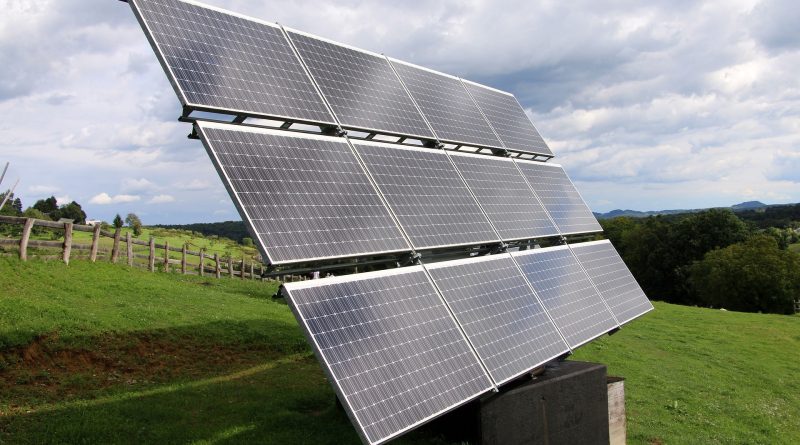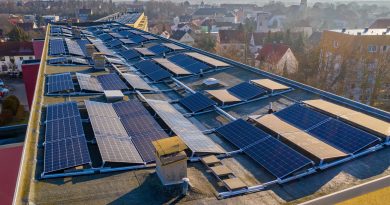On-Grid Solar Power Plant Batteries: Do You Need Them?
Solar power has gained significant popularity as a clean and renewable energy source. As more and more homeowners are switching to solar power, one question that often arises is whether or not batteries are necessary for an on-grid solar power plant. In this blog, we will explore the importance of batteries in an on-grid solar power plant and help you make an informed decision about whether they are right for you.
Table of Contents
The role of batteries in an on-grid solar power plant
Solar panels generate electricity from the sun’s rays, which can be used to power your home or even sell excess electricity back to the grid. In an on-grid system, the solar panels are connected to the traditional electric grid. This means that even if your solar panels are not generating electricity, you can still access power from the grid. But where do batteries fit into this equation?
Batteries play a crucial role in ensuring a continuous power supply in the event of a grid outage or during periods of low solar generation. They act as a form of energy storage, allowing you to store excess electricity generated by your solar panels during the day for use at night or during times when there isn’t enough sunlight. This can provide a reliable backup power source or even help reduce your dependence on the grid during peak energy demand periods.
Advantages of batteries in an on-grid solar power plant
1. Backup power during grid outages: One of the most significant advantages of having batteries in your on-grid solar power plant is the ability to have backup power during grid outages. While on-grid systems without batteries will immediately shut down when the grid goes down, systems with batteries can seamlessly switch to battery power, ensuring uninterrupted electricity supply until the grid is restored.
2. Utilizing excess solar energy: On bright sunny days, your solar panels may generate more electricity than you can use. Without batteries, this excess energy goes unutilized and is usually sent back to the grid. However, with batteries, you can store this excess energy and use it later when your solar panels aren’t generating enough electricity. This can help optimize the use of the solar energy you produce and reduce dependence on the grid.
3. Time-of-use optimization: Many utility companies charge different rates for electricity based on the time of day. By having batteries in your on-grid solar power plant, you can store electricity when rates are low and use it during peak times when rates are higher. This can result in significant cost savings on your electricity bill.
4. Energy independence: Having batteries in your on-grid solar power plant can provide you with a sense of energy independence. By having the ability to store and use your own solar energy, you can reduce your reliance on the grid and have peace of mind knowing that you have a backup power source during emergencies.
When are batteries not necessary?
While batteries offer numerous benefits, they may not be necessary for everyone. If you live in an area with a reliable grid and seldom experience power outages, the need for batteries in your on-grid solar power plant may be minimal. Additionally, if your main objective is reducing your carbon footprint and selling excess electricity back to the grid, batteries may not be a top priority.
Conclusion
Batteries are pivotal in enhancing the functionality of an on-grid solar power plant, serving as a backup power source during grid outages, utilizing excess energy efficiently, optimizing time-of-use rates, and offering energy independence. Their relevance, however, hinges on individual circumstances and preferences. A thoughtful evaluation of your energy needs, grid reliability, and objectives in adopting solar power is crucial in deciding whether to incorporate batteries into your on-grid solar power plant. Make an informed choice with SolarClue® by your side, ensuring your solar energy solution aligns seamlessly with your unique requirements.
Frequently Asked Questions
The need for batteries in an on-grid solar power plant depends on factors like energy storage goals and grid reliability.
Batteries store excess energy generated by your solar panels, providing backup power during grid outages or when demand is high.
While not mandatory, batteries can enhance your on-grid solar setup by offering energy independence and backup during grid interruptions.
Yes, adding batteries can increase initial costs, but they may provide long-term benefits, such as energy savings and grid independence.
In many on-grid setups, you can sell excess energy back to the grid without the need for batteries, depending on local regulations.
Battery lifespan varies but is typically around 5 to 15 years, depending on factors like usage, maintenance, and technology.
Yes, various battery types, including lithium-ion and lead-acid, are compatible with on-grid solar setups. Each has its own advantages and considerations.
In many cases, yes. However, compatibility and system modifications may be necessary. Consult with a professional for advice.
Batteries enhance efficiency by storing excess energy, optimizing consumption patterns, and providing a backup during grid outages.
Some regions offer incentives or rebates for adding energy storage to on-grid solar systems. Check local policies for available benefits.




